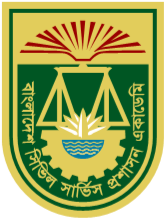The Instrumental Relationship of Special Economic Zones and Foreign Direct Investment: From the Context of Bangladesh
DOI:
https://doi.org/10.56379/bjam.v27i01.26Keywords:
Special Economic Zone (SEZ), Foreign Direct Investment (FDI), Export Processing Zone (EPZ)Abstract
Bangladesh has been planning to establish 100 SEZs in next 15 years. Generally, it
is believed that Special Economic Zones will attract FDI and develop the host country.
We intend to find some concrete evidence to evaluate the decisions taken by Bangladesh
regarding establishing SEZs. We used instrumental variables expressing the growth of
EPZs (main form of SEZ in Bangladesh) to find relationship of those variables with FDI.
Our Granger Causality analysis with instrumental variables proves SEZs have causal
relationship with FDI. But our graphical analysis shows that most of the FDI is going to
the non-SEZ sectors. This proves that our SEZs are not being able to accommodate the
FDI coming in our country; hence we require more SEZs to attract more FDI. We have
conducted experimental analysis of the causality on other developing countries which
shows that many developing countries were not successful in reaping the benefit of SEZs
as they lacked domestic backward linkages, skill transfer and innovation. These results
are also consistent with literatures studied for this analysis. We provide evidence that
SEZs and favorable macroeconomic condition cause FDI inflow. Hence, our research
yields the recommendation that Bangladesh should restructure its rules and regulations
regarding SEZs so as to foster inward linkages, increase domestic capabilities, arrange
efficient technology transfer, improve labor skills and ensure strict government tax
management.

